The Clean Space Industry Days (CSID) 2023 is a must-attend event for all space professionals and enthusiasts working on designing and building sustainable space missions! This year, the event takes place from 16th to 20th October at the European Space Research and Technology Centre (ESTEC) in Noordwijk, The Netherlands.
ESA has the ambition to safeguard terrestrial and orbital environments while boosting the innovation and competitiveness of Europe’s space sector. In practice, this means to clean up and keep clean our precious space environment as well as to reduce the environmental impacts of our activities. The Agency is now inviting all European space professionals to discuss the latest developments, best practices and trends in the areas of eco-designing space activities, managing the end-of-life of space missions, and in-orbit servicing including active debris removal.
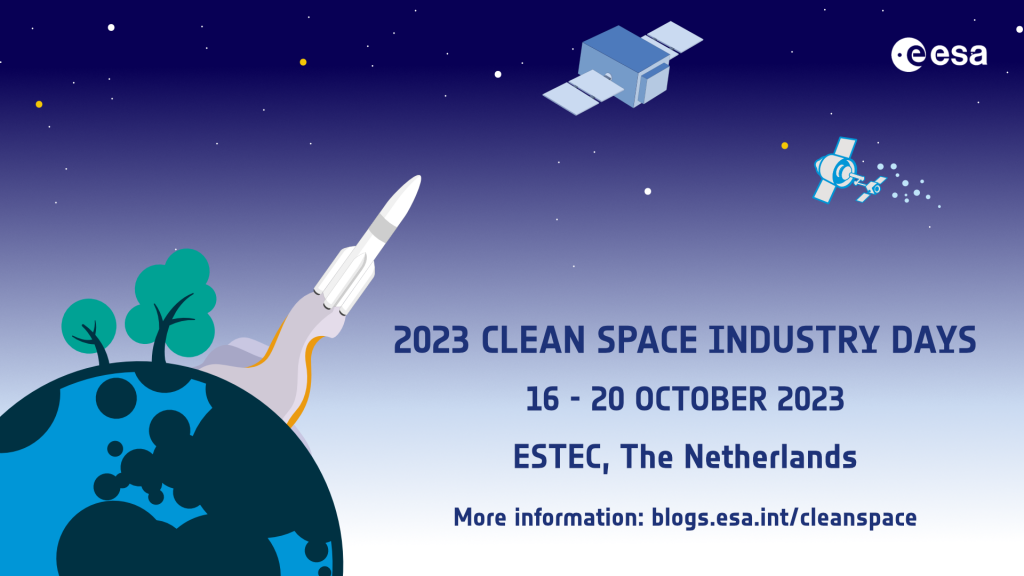
The ESA Clean Space initiative demonstrates global leadership to support the Agency’s objective to boost the competitiveness of European space actor in these crucial domains. Join the Industry Days and connect with the leading experts and industry players.
The five-day event focuses on the progress made in the fields of eco-design for space, end-of-life management, active debris removal and in-orbit servicing as well as the new ESA Zero Debris approach.
Zero Debris approach
ESA recognises the urgent need to ensure the safe use of valuable orbits around Earth and is striving to lead by example through the ambitious Zero Debris goal, to not generate any more debris by 2030.
The Zero Debris approach was put forward at the ESA Council at the Ministerial level in 2022 and received great support from Member States. The new goal forms a key element to succeed in the implementation of ESA’s Agenda 2025 and the new PROTECT accelerator. The Zero Debris approach expands ESA’s efforts within the Space Safety Programme and its related Clean Space initiative.
The Zero Debris approach outlines a series of actions and initiatives aimed at helping ESA in taking a strategic and proactive approach to safeguarding our space environment for future generations. The world leading Zero Debris approach will not only help to protect the functioning of satellites and the safety of human life on Earth, but also ensure that the benefits of space activities are enjoyed by all nations for many years to come.
The approach relies on the work performed in the frame of End-of-life Management and ADRIOS (Active Debris Removal and In-Orbit Servicing). Therefore, both clean space branches will be covered during the event, and an overview of the Zero Debris approach will be presented. Workshops will also be organised to allow the participants to give feedback to ESA on how to further implement the approach.
End-of-Life Management
ESA’s clean space initiative has been developing technologies to prevent the creation of future debris and has been implementing system activities to promote their integration in future missions, thus feeding the Zero Debris approach.
The event will give the opportunity to present and discuss the latest outcomes on the following fundamental topics to comply with and anticipate the current and future space debris mitigation requirements:
- technologies for Design for demise
- technologies for Design for Removal
- technologies for Passivation
- technologies for Deorbiting
Therefore, abstracts related to these topics will be much appreciated.
Active Debris Removal and In-Orbit Servicing
During the Clean Space Industry, ESA encourages abstracts across various topics in the frame of Active Debris Removal and In-Orbit Servicing
Active Debris Removal
ESA is working together with ClearSpace on the implementation of an active debris removal (ADR) mission, ClearSpace-1. This mission will remove an existing debris, the VESPA upper part, which has been on-orbit since 2013. During the Clean Space Industry Days there will be an update on this mission, together with other ADR and inspection missions under implementation and in preparation by both ESA and European industry.
Commercial In-Orbit Servicing
Globally significant progress has been made in both the technical and commercial validation of in-orbit servicing activities such as debris removal, AOCS takeover for life extension, asset relocation, refuelling and in-orbit inspection. Looking forward, ESA aims to contribute to the creation of the demand for In-Orbit Servicing (IOS) in Europe by fostering both the service-offering side and to stimulate and enable the demand side of the developing IOS market. Recent IOS related activities conducted under ESA contracts highlighted the strong interest from commercial operators for life extension through Attitude and Orbit Control System (AOCS) takeover in Geostationary (GEO) orbit. At the Council Meeting at Ministerial Level in November 2022 (CM22), States participating to the Space Safety Programme (S2P) demonstrated strong support and ambitions for commercial In-Orbit Servicing (IOS). During the Clean Space Industry Days, ESA will present the latest regarding In-Orbit Servicing Mission Developments involving both service providers and commercial customers of IOS applications and welcomes abstracts in this area.
Circular Economy
In the long-term, IOS should enable the concept of a circular economy, with services such as in-orbit assembling, refueling, manufacturing and recycling and, even in space manufacturing and recycling. Therefore, abstracts related to circular economy in space will be also welcome, on top of in-orbit services and debris removal related matters.
Technology Development
Preparation is key for future In-Orbit Servicing Missions, in particular the derisking activities performed in technology developments. Abstracts on the latest state-of-the-art for GNC, capture systems, propulsion systems and avionics relevant for ADR and IOS are encouraged.
Close Proximity Operations
Increasing worldwide interest in the execution of rendezvous, proximity and capture operations for in-orbit servicing such as repair, refuelling, and tugging has highlighted the lack of clear and widely accepted technical and safety standards for uncrewed vehicles. There will be a dedicated session to cover standards and guidelines that enable commercial in-orbit servicing which are fundamental for building a common understanding between Agencies, insurers, integrators, equipment providers and licensing authorities.
Eco-design for space
ESA Director General reiterated in the Agenda 2025 that making ESA “a greener organisation” is a priority. This entails developing cleaner space missions and thus requires assessing and understanding their environmental footprint from the design phase to their end-of-life. A comprehensive understanding of the environmental footprint of space missions is paramount in order to:
- foster the application of ecodesign practices from early phases,
- comply with the expectations of European citizens in terms of environmental management,
- mitigate the risks of supply chain disruption from the early stages of the design because of stringent environmental regulations,
- prepare industry and decision makers for future challenges while remaining competitive,
- prepare roadmaps to develop greener technologies which can reduce the impacts of space missions
ESA Clean Space office has been working for more than a decade to achieve that goals and will take advantage of the 2023 CSID edition to further share the knowledge acquired, the latest developments and achievements as well as the challenges encountered. The clean space team is expecting the same from the professionals joining the event and is looking forward discussing any ways forward to enforce the European space sector’s position towards a greener space.
Abstracts related to the above listed topics are welcome.
Registration
The event is open to entities from ESA Member States, Cooperating States and Associate States as well as to companies from outside this perimeter if they intend to act as “buyer” to procure European products and services.
Participation is free of charge. However, a registration is required. Click here to register.
If you have any question, feel free to email us: cleanspace@esa.int.
Call for abstracts
Submit your abstract for the CSID2023 on the event’s website. If your abstract is selected, we will ask you to give a presentation during the clean space industry days 2023. No paper will be requested.
Please note the following deadlines:
- 23 July 2023: Abstract submission
- 18 September 2023: Announcement of the abstracts selected
- 1 October 2023: Registration deadline
- 16-20 October 2023: Presentations at CSID2023
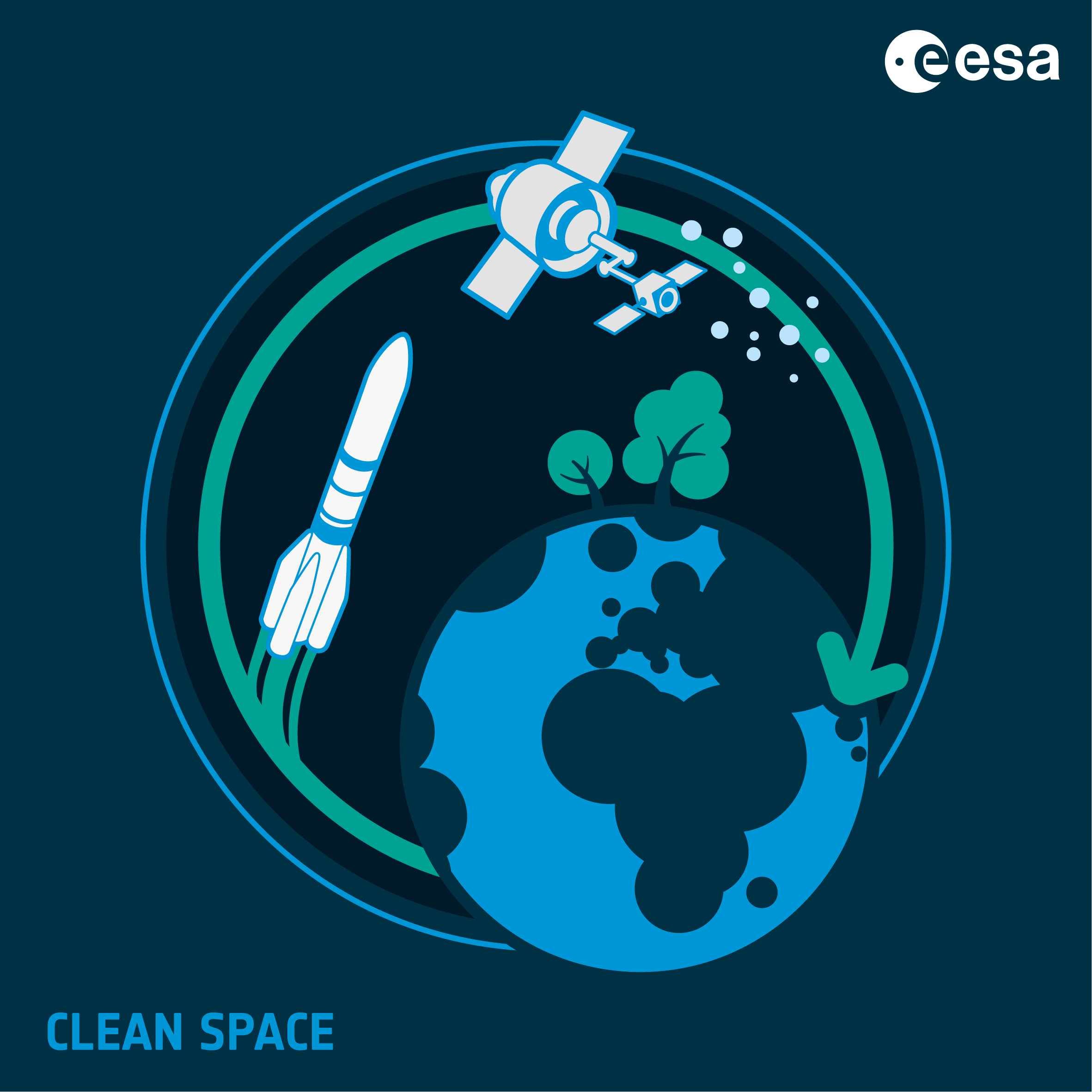

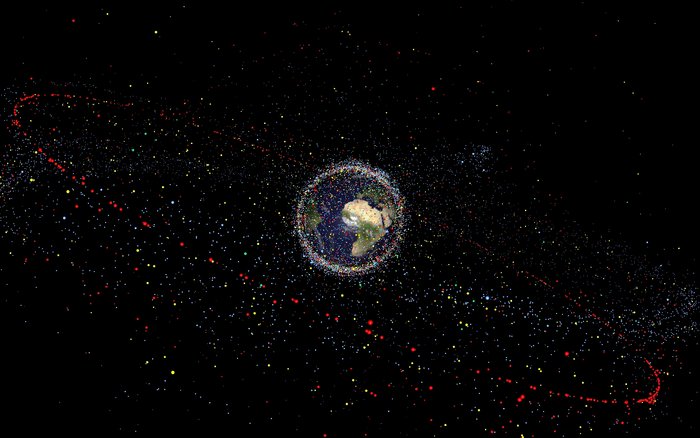
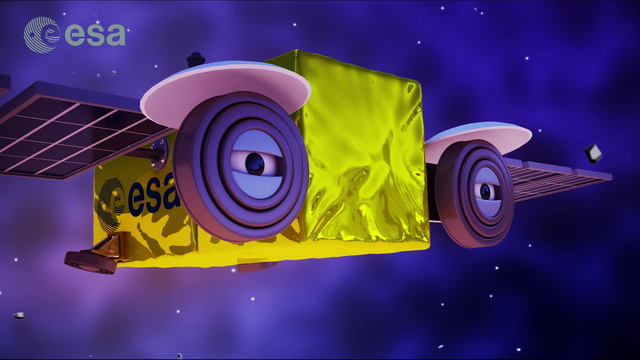
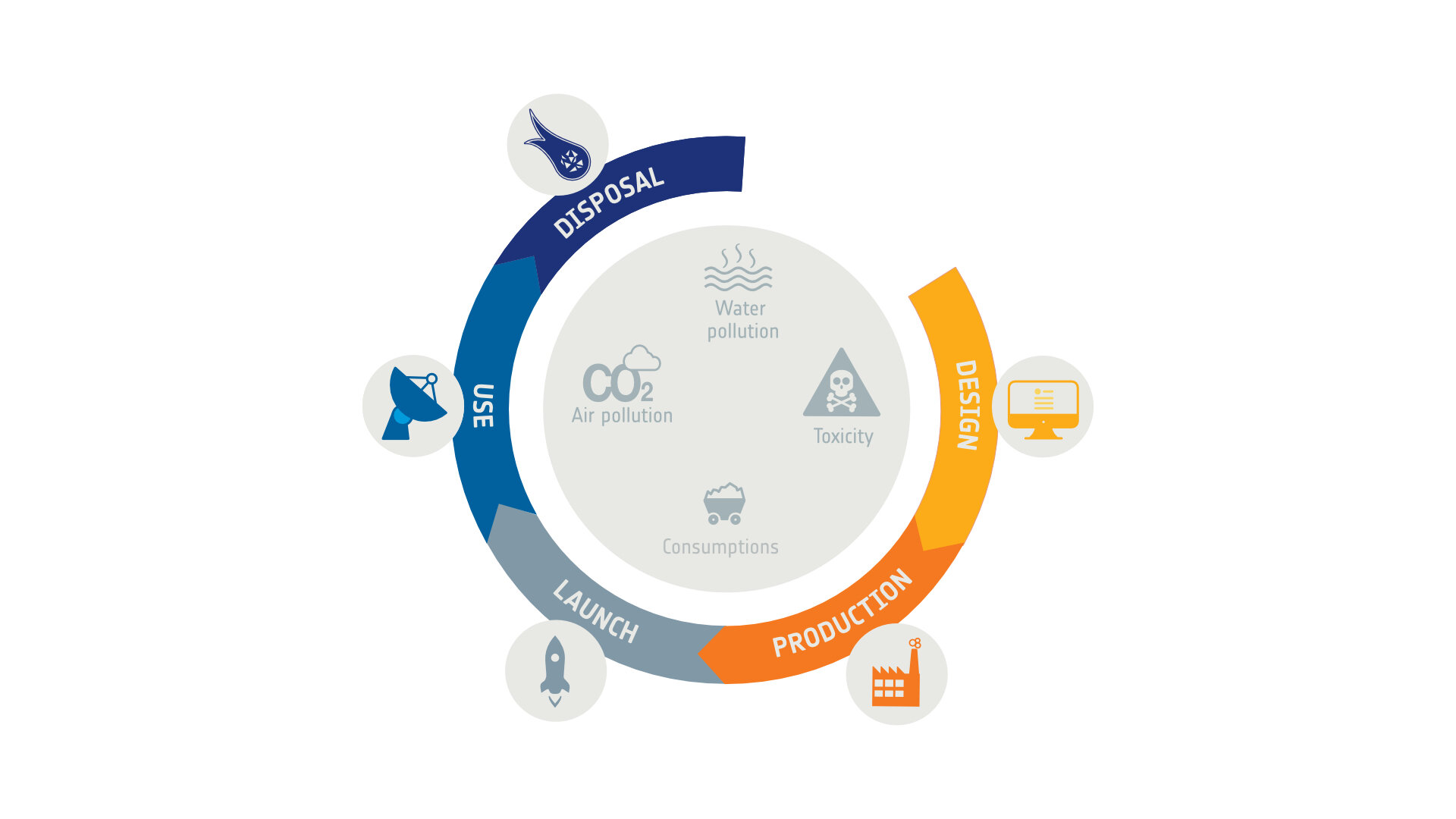
Discussion: no comments